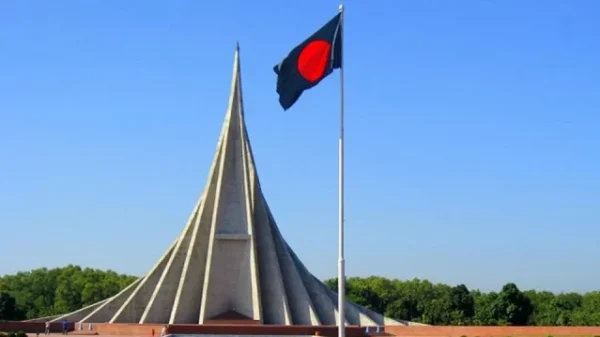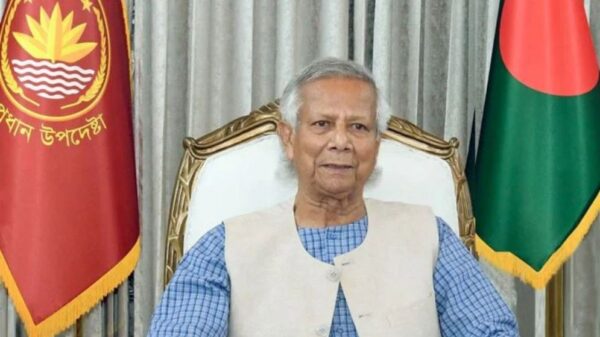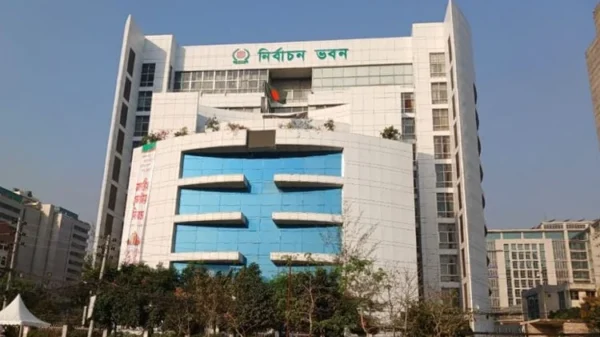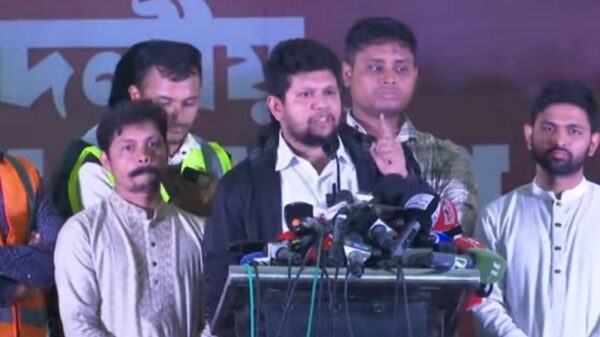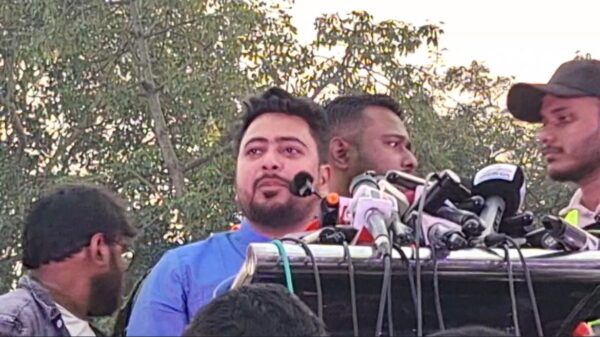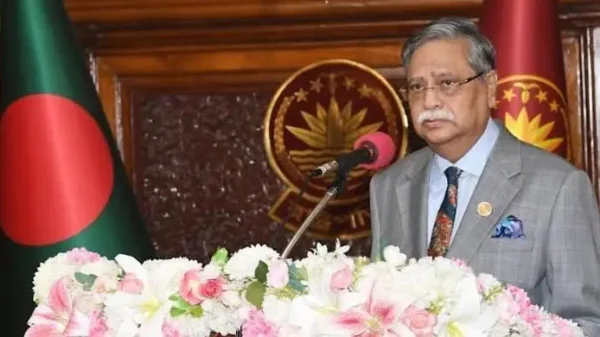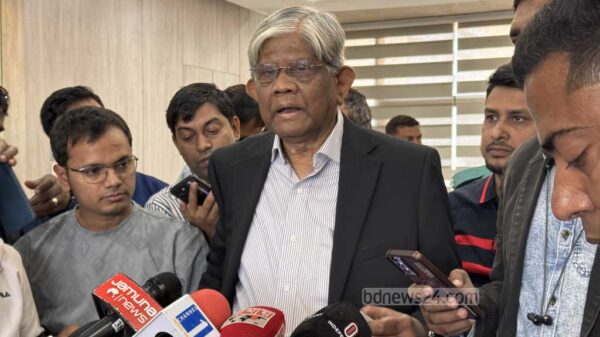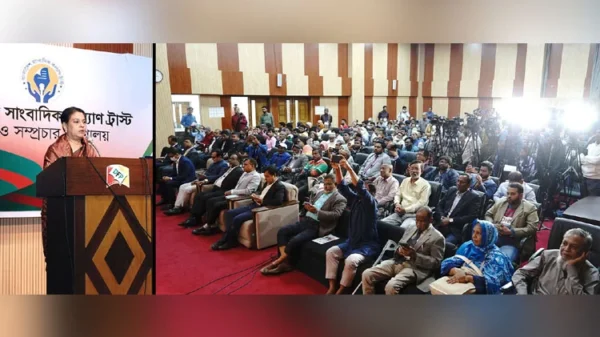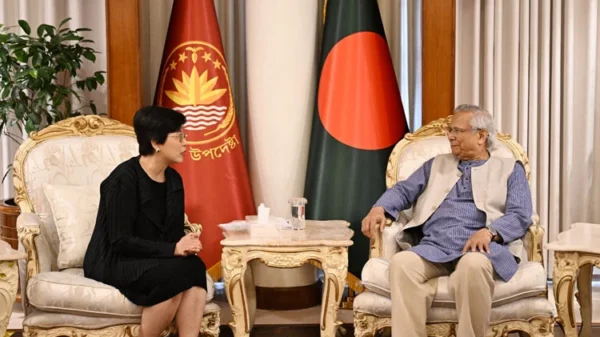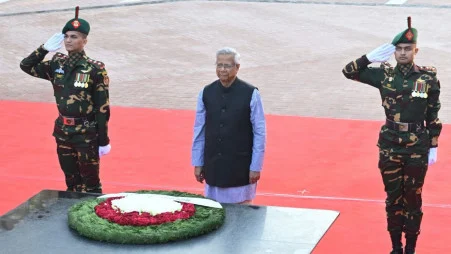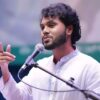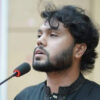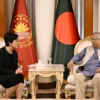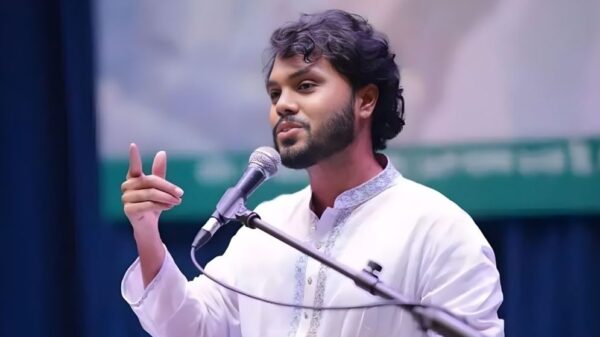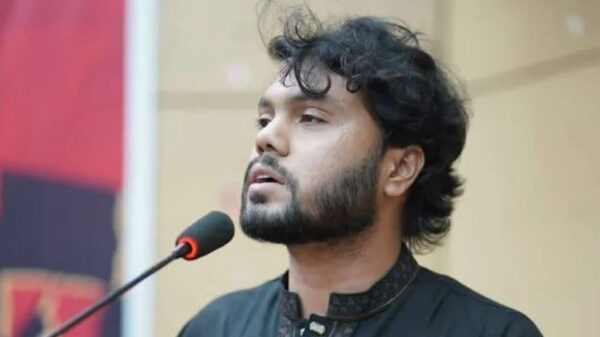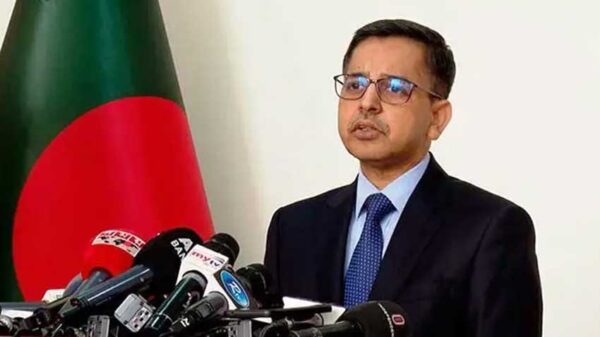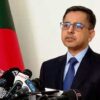Staff Reporter:
Ambassador and Head of Delegation of the European Union (EU) to Bangladesh Charles Whiteley has said the EU, under the EU Global gateway Strategy and through a Team Europe approach, is committed to supporting gender equality in the energy sector, and more generally, to making energy and power more inclusive.
“To this end, we need everybody on board, we need all the ideas,” he said.
In a recorded video message, Director General for Energy of the European Commission (DG ENER) Ditte Juul Jorgensen said, “We believe that the green energy transition, in Europe, but also in South Asia, is the future and that we should stop investing in the old economy, but instead double our energy efficiency and triple our renewable energy by 2030.”
Shoktikonna hosted its “Leadership and Career Summit” event in Dhaka on Saturday addressing the need for more women leaders in the global green transition, including in Bangladesh.
Shoktikonna aims to break barriers and provide a platform for aspiring women in the green energy tran-sition, said a media release on Sunday.
The full-day interactive event, targeting 100 participants young women STEM (Science, Technology, Engineering and Mathematics) graduates, engineering professionals, decision-makers, and representatives from private companies, engaged the young women participants in discussions with a wide range of speakers on topics like career patterns, leadership skills, gender stereotypes, access to decision making and managerial positions, financing and access to credit, gender sensitive and gender inclusive HR and institutional policies.
The summit was part of 2023 Shoktikonna Leadership Cohort’s journey. The high-level inaugural plena-ry session was opened by Md. Arif Raihan Maahi, Chief Impact Officer, Devtale Partners.
He said, “We from Devtale Partners are extremely privileged to be able to continue the Shoktikonna Leadership Cohort 2023 for the second time. As part of one of our climate actions, we are continuing the effort to accelerate the inclusive green transition.”
His speech was followed by Gyongshim An, Lead Urban Specialist, Program Leader, the World Bank, who mentioned that ‘In the last decade, Bangladesh’s Female Labor Force participation rate increased to 42 percent from 33 percent, which fares better than South Asian average. Everyday more and more women are joining the workforce in the government, private sector, technology, sports and other areas across the nation. Yet gender gap persists, particularly in STEM education and jobs. As Bangladesh and world make transition to green energy, it opens a tremendous opportunity for the female engineers to join the energy sector in new and diverse “green” jobs.’
Tania Khan, Additional Secretary, Power Division, Ministry of Power, Energy and Mineral Recources (MoPEMR) reminded the audience that women face discrimination in access to technology, assets, in-formation, and decision-making, and this is particularly acute in relation to energy.
“Most young girls in Bangladesh do not have role models who are female scientists or engineers,” she said.
Khan also graced the audience with an inspiring singing performance, followed by an impressive per-formance by Naquib Khan, popular singer, lyricist and director.
An engaging panel discussion followed, featuring Zareen Tasnim, Program Coordinator, Gender and Economic Inclusion from IFC, Uttam Kumar Saha, Strategic Lead – Urban WASH, Waste Management and Energy, Practical Action Bangladesh, Julia De Pierrepont, Team Lead – Energy Sector, AFD, Sabina Parvin, Social Developmen Specialist, Gender and GBV, The World Bank, moderated by Chiara Vidussi, Programme Manager Energy sector, the EU, on how to unlock women’s potential to be change makers in the green energy sector.
Inter alia access to finance, innovation and service delivery, business cases, building green skills, HR policies and practices, recognition of women’s current key roles at central and household level, breaking stereotypes and cultural norms were considered important priorities.
The participants engaged in interactions with some inspiring female role models who shared their per-sonal stories and perspectives, including Jannatul Ferdous, recently included in BBC’s list of 100 inspira-tional and influential women in 2023, Bushra Nishat, Environmental Specialist, The World Bank, Nabila Nowrin, Founder, Moar.
In the afternoon, a dedicated Capacity Development Session, led by GIZ Bangladesh, was facilitated for HR professionals from renowned power and energy industries, focusing on structured and inclusive planning of internships.
Shahbina Nahid Labib, Component Manager, Renewable Energy, Energy Programme, GIZ Bangladesh said “By encouraging and supporting women to enter the green energy workforce, we not only bridge gender gaps but also enhance the industry’s potential for ground-breaking advancements. As we transi-tion towards clean energy and green solutions – it also opens new opportunities for women in this emerging field.”
The summit provided a unique networking platform, fostering connections among participants, industry professionals, and peers, building bridges for a more sustainable and inclusive future, allowing partici-pants to establish meaningful connections in the energy sector.


